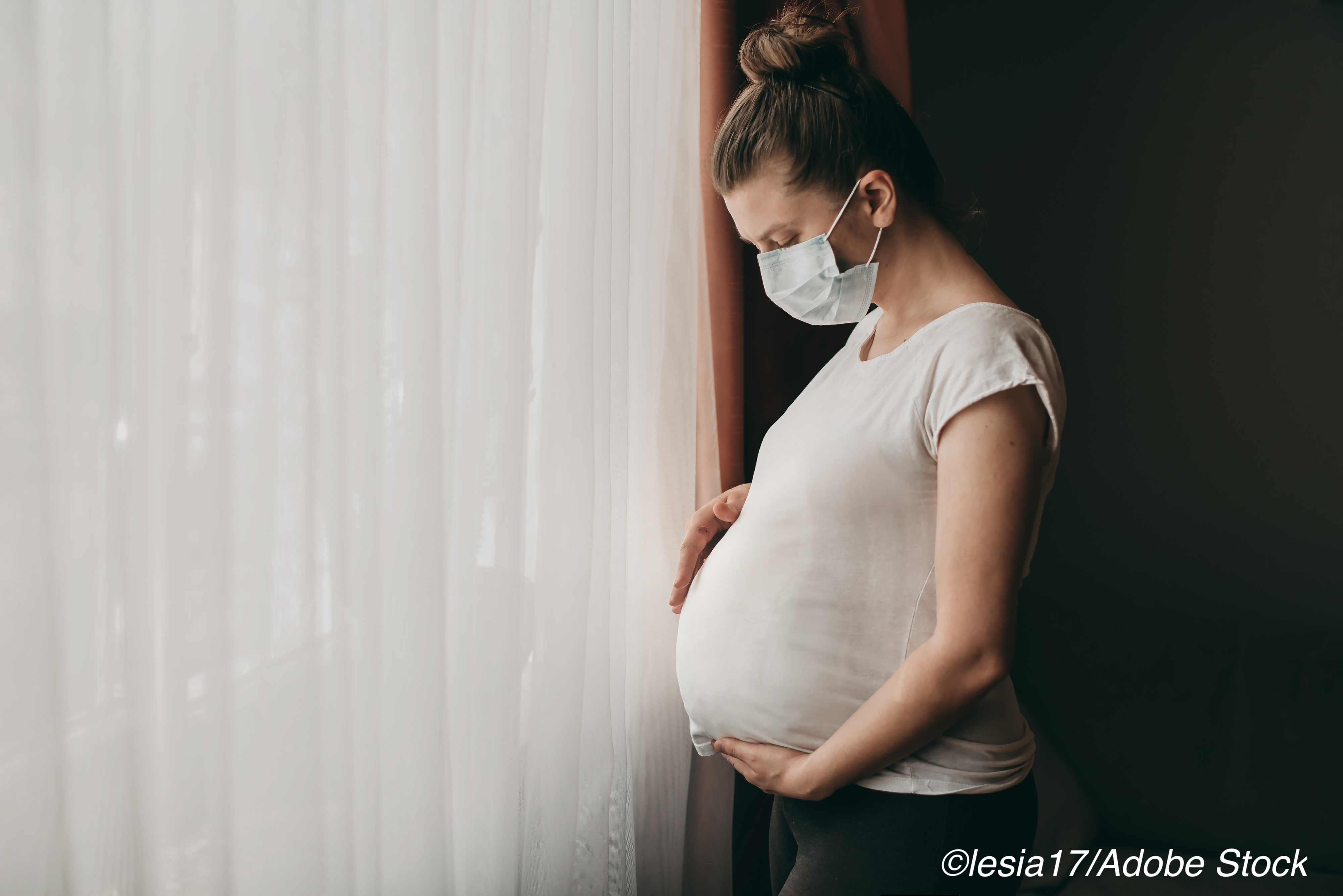
“The findings in this report suggest that among adolescents and women aged 15–44 years with Covid-19, pregnancy is associated with increased risk for ICU admission and receipt of mechanical ventilation, but it is not associated with increased risk for mortality,” Sascha Ellington, PhD, from the CDC Covid-19 Response Pregnancy and Infant Linked Outcomes Team, and colleagues wrote in the Morbidity and Mortality Weekly Report. “This report also highlights the need for more complete data to fully understand the risk for severe illness resulting from SARS-CoV-2 infection in pregnant women. Further, collection of longitudinal data for pregnant women with SARS-CoV-2 infection, including information about pregnancy outcomes, is needed to understand the effects of SARS-CoV-2 infection on maternal and neonatal outcomes.”
That said, pregnancy was added to the new CDC guidance for those who might be at risk for severe Covid-19, as BreakingMED previously reported. The document states that along with an increased risk for severe illness, pregnant women who contract Covid-19 might also be at risk for adverse pregnancy outcomes, such as preterm birth.
Ellington and colleagues reviewed data on pregnancy status for 91,412 women with laboratory-confirmed Covid-19. Of these, 8,207 (9.0%) were pregnant, and the study authors compared them with infected non-pregnant women — 46.2% were Hispanic, 23% were non-Hispanic white, 22.1% were non-Hispanic Black, and 3.8% were non-Hispanic Asian, compared with 38.1%, 29.4%, 25.4%, and 3.2%, respectively, among non-pregnant women.
“Among women with Covid-19, approximately one third (31.5%) of pregnant women were reported to have been hospitalized compared with 5.8% of non-pregnant women,” Ellington and colleagues reported. “After adjusting for age, presence of underlying medical conditions, and race/ethnicity, pregnant women were significantly more likely to be admitted to the intensive care unit (ICU) (aRR = 1.5, 95% confidence interval [CI] = 1.2–1.8) and receive mechanical ventilation (aRR = 1.7, 95% CI = 1.2–2.4). Sixteen (0.2%) Covid-19–related deaths were reported among pregnant women aged 15–44 years, and 208 (0.2%) such deaths were reported among non-pregnant women (aRR = 0.9, 95% CI = 0.5–1.5).”
Given these findings, the study authors suggest that “pregnant women should be counseled about the potential risk for severe illness from Covid-19, and measures to prevent infections with SARS-CoV-2 should be emphasized for pregnant women and their families.”
Fewer pregnant women (65.2%) reported symptoms than non-pregnant women (90.0%). However, “among those with symptom status reported, 97.1% of pregnant and 96.9% non-pregnant women reported being symptomatic,” Ellington and colleagues reported. “Symptomatic pregnant and non-pregnant women also reported similar frequencies of cough (51.8% versus 53.7%) and shortness of breath (30.1% versus 30.3%). Pregnant women less frequently reported headache (40.6% versus 52.2%), muscle aches (38.1% versus 47.2%), fever (34.3% versus 42.1%), chills (28.5% versus 35.6%), and diarrhea (14.3% versus 23.1%) than did non-pregnant women.”
While the study authors only had data on underlying chronic conditions for 22.9% of the pregnant women and 35% of the non-pregnant women, the pregnant women had a higher percentage of chronic lung disease, diabetes mellitus, and cardiovascular disease than non-pregnant women. Pregnant women were also more likely to be hospitalized (31.5%) compared with non-pregnant women (5.8%).
Ellington and colleagues noted that symptom status was missing from about a third of the pregnant women compared with 10% of the non-pregnant women, leading the study authors to hypothesize that “if those with missing symptom status are more likely to be asymptomatic, the percentage of pregnant women who are asymptomatic could be higher than the percentage of asymptomatic non-pregnant women. They also noted that since the symptoms reported were lower in pregnant women than non-pregnant women, it could mean that the signs and symptoms of Covid-19 might present differently in pregnant women. They added pre-pregnancy medical conditions need to be better identified to help determine if they affect Covid-19 outcomes in this patient population.
Ellington and colleagues acknowledged several limitations of their report, including that pregnancy status was missing for 75% of those women of child-bearing age infected with SARS-CoV-2; a large proportion of those who were pregnant had data missing on race/ethnicity, symptoms, underlying conditions and outcomes; and that pregnancy outcomes were not captures, making it unclear if Covid-19 “during pregnancy is associated with adverse pregnancy outcomes, such as pregnancy loss or preterm birth.”
- A CDC report recommends that pregnant women should make an effort to reduce their risk of getting Covid-19 as contracting the virus may increase their risk for more severe disease compared to their non-pregnant counterparts.
- Be aware that they also noted that Hispanic and non-Hispanic Black pregnant women appear to be disproportionately affected by SARS-CoV-2 infection.
Candace Hoffmann, Managing Editor, BreakingMED
Ellington disclosed no relevant relationships.
Cat ID: 190
Topic ID: 79,190,254,930,570,574,730,933,190,926,192,927,151,928,925,934

